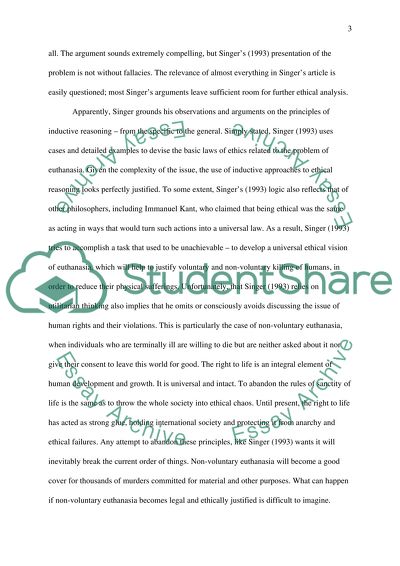Cite this document
(“Should Euthanasia Be Legalized Responding to Peter Singers Taking Essay”, n.d.)
Retrieved from https://studentshare.org/literature/1428378-should-euthanasia-be-legalized-responding-to-peter-singers-taking-life-humans
Retrieved from https://studentshare.org/literature/1428378-should-euthanasia-be-legalized-responding-to-peter-singers-taking-life-humans
(Should Euthanasia Be Legalized Responding to Peter Singers Taking Essay)
https://studentshare.org/literature/1428378-should-euthanasia-be-legalized-responding-to-peter-singers-taking-life-humans.
https://studentshare.org/literature/1428378-should-euthanasia-be-legalized-responding-to-peter-singers-taking-life-humans.
“Should Euthanasia Be Legalized Responding to Peter Singers Taking Essay”, n.d. https://studentshare.org/literature/1428378-should-euthanasia-be-legalized-responding-to-peter-singers-taking-life-humans.


